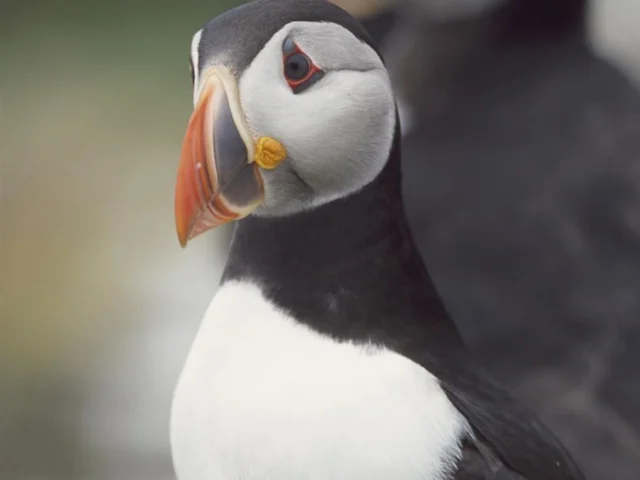DEFRA creates Marine Conservation Zones
e7f76979-ca66-42fe-8be8-3ca121c1e361

DEFRA has announced the creation of 23 new Marine Conservation Zones (MCZs) and a proposed seven Special Protection Areas (SPAs) around the British coast.
The creation of these zones is an important step in protecting British coasts and seas. However, the job is not yet complete, and more needs to be done to protect seabirds.
This important step towards establishing a functioning network of marine protection for our seas brings the total number of MCZs to 50. The new MCZs will cover areas across England and Wales from as far north as the Farne Islands, Northumberland, down to Land’s End, Cornwall. Totalling 4,155 square miles of rich marine habitats, these new protected areas bring the entire protected area around our coasts to 7,886 square miles.
The RSPB's Martin Harper said: “To save nature, we need the most important places on both land and at sea to be protected and well managed. This new announcement is an important step towards this goal.
“However, it is disappointing to see that some of the UK’s sites for seabirds haven’t been used in the designation process. We hope that the third round of marine protected designations due in 2018 will offer the chance to finally designate sites that provide protection for our seabirds.”
Britain is home to an internationally important 8 million nesting seabirds of 26 species. Yet they are facing significant declines, and around 600,000 individuals were lost between 2000 and 2008.
Despite threats such as marine pollution and the impacts of climate change, at-risk species such as Puffin have not been included in the current designations. Previously, it was thought too difficult to identify important sites for highly mobile species such as seabirds, but new data collected by the RSPB and other organisations are making this possible. Through groundbreaking scientific research, the RSPB is now able to track the birds away from their breeding sites.
“Human activities have caused environmental declines along our coasts and across our seas. Marine protected areas offer a tool to help monitor and manage threats, allowing species to recover and giving them room to adapt to the impacts of climate change. Today’s announcement is a positive step in this direction but more is still needed to protect our globally important seabird colonies.”
The RSPB has also welcomed a proposal for the designation of seven new or extended SPAs for seabirds under the European Birds Directive. These sites will provide much-needed and long overdue protection for a range of seabirds, from the wintering grounds of internationally important populations of divers, ducks and grebes to the foraging areas relied upon by breeding tern colonies, but details of these are not yet available. Despite the global importance of British waters for seabirds and 34 years after the European Birds Directive substantially strengthened protection for birds in the country, the network of SPAs remains substantially incomplete.
The creation of these zones is an important step in protecting British coasts and seas. However, the job is not yet complete, and more needs to be done to protect seabirds.
This important step towards establishing a functioning network of marine protection for our seas brings the total number of MCZs to 50. The new MCZs will cover areas across England and Wales from as far north as the Farne Islands, Northumberland, down to Land’s End, Cornwall. Totalling 4,155 square miles of rich marine habitats, these new protected areas bring the entire protected area around our coasts to 7,886 square miles.
The RSPB's Martin Harper said: “To save nature, we need the most important places on both land and at sea to be protected and well managed. This new announcement is an important step towards this goal.
“However, it is disappointing to see that some of the UK’s sites for seabirds haven’t been used in the designation process. We hope that the third round of marine protected designations due in 2018 will offer the chance to finally designate sites that provide protection for our seabirds.”
Britain is home to an internationally important 8 million nesting seabirds of 26 species. Yet they are facing significant declines, and around 600,000 individuals were lost between 2000 and 2008.
Despite threats such as marine pollution and the impacts of climate change, at-risk species such as Puffin have not been included in the current designations. Previously, it was thought too difficult to identify important sites for highly mobile species such as seabirds, but new data collected by the RSPB and other organisations are making this possible. Through groundbreaking scientific research, the RSPB is now able to track the birds away from their breeding sites.
“Human activities have caused environmental declines along our coasts and across our seas. Marine protected areas offer a tool to help monitor and manage threats, allowing species to recover and giving them room to adapt to the impacts of climate change. Today’s announcement is a positive step in this direction but more is still needed to protect our globally important seabird colonies.”
The RSPB has also welcomed a proposal for the designation of seven new or extended SPAs for seabirds under the European Birds Directive. These sites will provide much-needed and long overdue protection for a range of seabirds, from the wintering grounds of internationally important populations of divers, ducks and grebes to the foraging areas relied upon by breeding tern colonies, but details of these are not yet available. Despite the global importance of British waters for seabirds and 34 years after the European Birds Directive substantially strengthened protection for birds in the country, the network of SPAs remains substantially incomplete.

